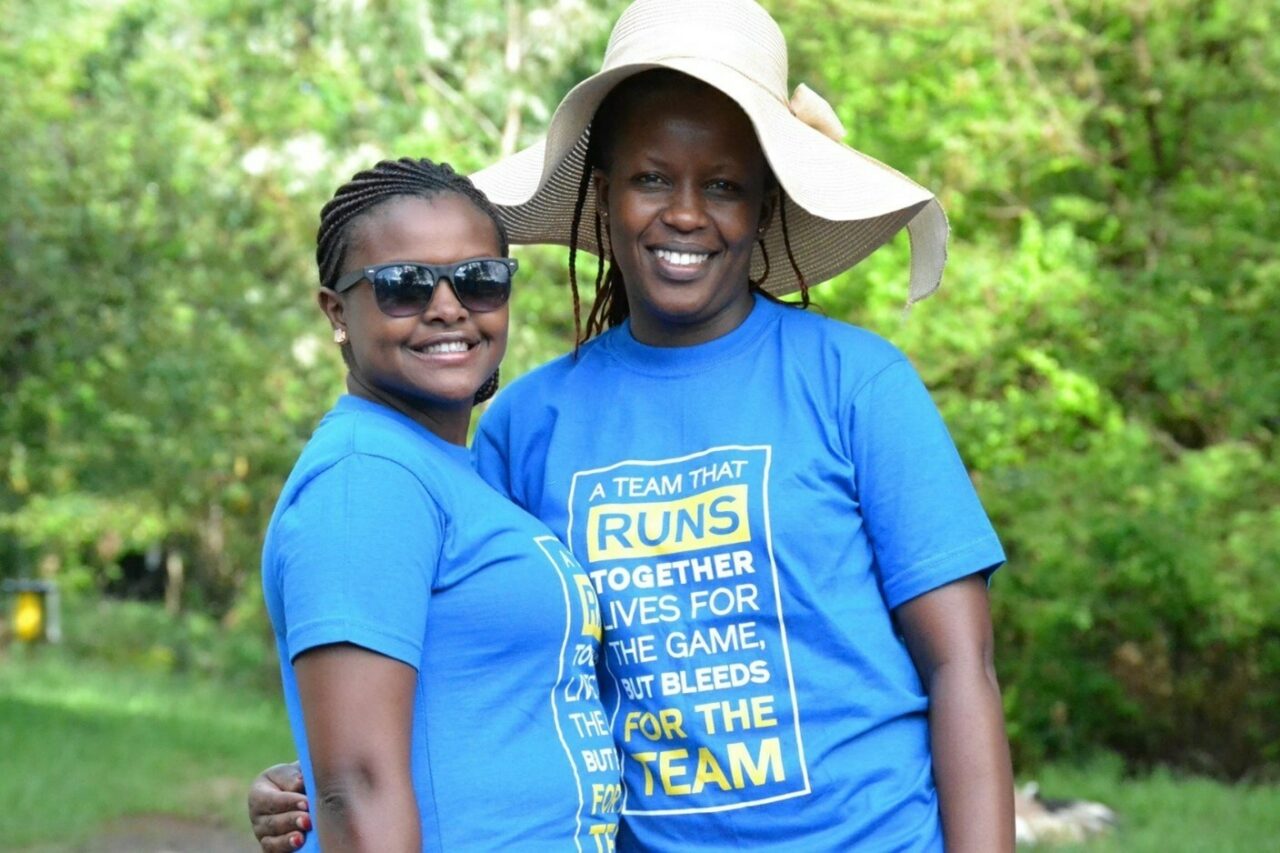Everyone should have equal access to justice. But 570 million women around the world are subject to violence every year. These women and young girls need strong justice systems to defend them and safe communities to heal and thrive.
That’s why this year, for International Women’s Day on March 8, we’re taking a moment to spotlight the people on the frontlines who choose to challenge this injustice every day: brave women who fight relentlessly to protect other women.
From our field offices all over the world, we asked them: how do you challenge injustice as a woman? These were their answers…
From Bolivia:
Miriam Chura, Lead, Partnerships Relations
You fight injustice by working and demonstrating that from where you—as a professional, a mom, a friend, and a coworker—you can face injustice with your actions.
From the role I currently am in, I can give and contribute a small grain of sand in the hearings at court, working alongside my team in a common fight, leading other women and recognizing other women’s leaderships on my team, and joining efforts for a joint fight.
Fabiola Viraca, Psychologist
You face injustice by persistently fighting it. Because you don’t fight for yourself or your ideals. You are there fighting for everything. For a girl, boy, adolescent, a family, a community—an “all”—that you know need you to find a little of justice.
To recognize yourself as an active actor within society, knowing that every action has a reaction and that little by little you can change your surroundings inspires me to keep going day by day, to not give up, to wake up with more enthusiasm to keep fighting against injustice.
From the Dominican Republic:
Sonia Hernandez, Associate Director, IJM DR
In the face of so much injustice that generally is a detriment for women or other vulnerable people or groups, I am inspired to fight for justice to expand its reach and correct application. To leave a message that women have the potential to fight against broken systems that don’t protect the most vulnerable. To strengthen systems so that they will respond with equity for all.
From Guatemala:
Jimena León, Clinical Psychologist, Guatemala
“I challenge injustice by raising my voice. When I was a little girl, sometimes my grandma would tell me “It is better not to say anything, so things don’t become a problem.” I remember replying with “but why should I remain silent when something is not fair?” As I grew older, I realized how much power our voice has, and with silence, you just become an accomplice of injustice.”
From Kenya:
Pamella Masakhwi, Senior Manager Survivor Services
By empowering survivors to, first of all, speak out. The greatest gift to the perpetrator of violence is the silence of the survivor. I encourage them to speak out and allow their voice to be heard.
Secondly, I support these women and girls to stand up for themselves by seeking justice on their own behalf. Supporting them to go to court and provide a compelling testimony of their experience of injustice so that the perpetrator can be held accountable.
Roselyne Ndegwa, Senior Manager, Programs
Making sure that information is available. Information is power, and people will only make the right choices when fully equipped with the right knowledge. By giving everyone a chance to be heard, remember no voice is too small.
Finally, equity and access to services is key in fighting any form of injustice. My constant guiding question is: how does the work I do ensure access to services for the boy, girl, man, woman who cannot speak for themselves?
Esther Njuguna, Senior Coordinator Survivor Services
By ensuring there is equity in dealing with our challenges as women and giving women and girls a voice through my platform. Making sure they know that their voices on issues pertinent to them is important.
From Uganda:
Ruth Lawino, Senior Manager, Gulu Projects
I do not stay quiet. I speak out when something does not seem right. I do not have to know the people involved. All I need to know is that there is an injustice being perpetuated. Staying silent or being aloof is an injustice. Championing change begins with me.
Josephine Aparo, Aftercare Manager, Ghana
I have decided to use my voice to create change and to encourage other women to rise and speak against the hidden crime against women and girls too. And not be silent again.
